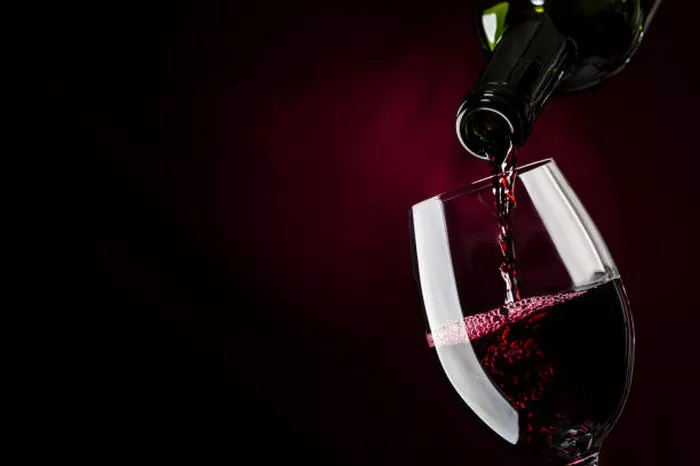Sauvignon Blanc and Chardonnay are two of the most popular white wine varietals in the world, known for their distinct flavors and characteristics. One common question among wine enthusiasts is whether Sauvignon Blanc is sweeter than Chardonnay. To answer this question comprehensively, we need to delve into the nuances of these two wines, exploring their flavors, production methods, and regional variations.
Understanding Sauvignon Blanc and Chardonnay
Before comparing the sweetness levels of Sauvignon Blanc and Chardonnay, it’s essential to understand the fundamental characteristics of each varietal.
Sauvignon Blanc is renowned for its vibrant acidity and crispness, often accompanied by aromas of citrus, green apple, and grassy notes. It typically produces dry wines with refreshing acidity, making it a popular choice for warm weather and pairing with various dishes.
Chardonnay, on the other hand, is a versatile grape that can yield a wide range of styles, from crisp and unoaked to rich and buttery. Its flavor profile includes notes of tropical fruits, melon, butter, and vanilla, depending on factors such as oak aging and malolactic fermentation. Chardonnay wines can vary from bone dry to moderately sweet, offering diversity to wine enthusiasts.
Sweetness Levels in Sauvignon Blanc and Chardonnay
When comparing the sweetness levels of Sauvignon Blanc and Chardonnay, it’s crucial to consider several factors that influence the taste of the wine.
Firstly, the ripeness of the grapes at harvest significantly impacts the sugar content in the juice. Riper grapes tend to have higher sugar levels, which can result in sweeter wines if fermentation is halted before all the sugars are converted into alcohol.
Secondly, winemaking techniques play a crucial role in determining the final sweetness of the wine. For instance, some winemakers may choose to ferment Chardonnay in oak barrels or undergo malolactic fermentation, which can impart creamy textures and enhance perceived sweetness. In contrast, Sauvignon Blanc is often fermented in stainless steel tanks to preserve its crisp acidity and primary fruit flavors.
Regional Variations
The sweetness levels of Sauvignon Blanc and Chardonnay can also vary depending on the region where the grapes are grown and the winemaking traditions of that area.
For example, New Zealand Sauvignon Blanc, particularly from Marlborough, is celebrated for its intense aromatics and zesty acidity. These wines typically showcase bright citrus flavors with minimal residual sugar, making them exceptionally dry compared to many Chardonnays.
On the other hand, Chardonnay from regions like California’s Napa Valley or Burgundy in France often undergoes oak aging and malolactic fermentation, resulting in wines with richer textures and subtle sweetness from oak influences. However, there are also many examples of unoaked Chardonnay from cooler climates that exhibit crisp acidity and minimal sweetness.
Food Pairing Considerations
Whether Sauvignon Blanc or Chardonnay is sweeter can influence the wine’s compatibility with various food pairings.
Sauvignon Blanc’s high acidity and refreshing character make it an excellent choice to cut through fatty or creamy dishes, such as goat cheese salads or seafood with rich sauces. Its dry profile complements the flavors of these dishes without adding extra sweetness to the palate.
On the other hand, the subtle sweetness and round mouthfeel of certain Chardonnays can enhance the flavors of dishes like roasted chicken, lobster, or creamy pasta sauces. The wine’s creamy texture and oak-derived flavors can complement the dish’s richness, creating a harmonious pairing experience.
Personal Preference and Perception
Ultimately, whether one perceives Sauvignon Blanc as sweeter than Chardonnay can also depend on individual taste preferences and perception.
Some individuals may have a heightened sensitivity to acidity, making wines with pronounced acidity like Sauvignon Blanc taste sharper or more acidic, potentially masking any residual sweetness. Conversely, those who prefer wines with richer textures and softer acidity may perceive certain Chardonnays as sweeter, particularly if they exhibit ripe fruit flavors and oak influences.
Conclusion
In conclusion, the question of whether Sauvignon Blanc is sweeter than Chardonnay does not have a straightforward answer. Both wines can vary widely in sweetness levels depending on factors such as grape ripeness, winemaking techniques, and regional influences.
Sauvignon Blanc is generally known for its crisp acidity and dry profile, whereas Chardonnay offers a broader spectrum of styles ranging from bone dry to moderately sweet. Understanding the characteristics and regional variations of eachvarietal can help wine enthusiasts appreciate the diversity and complexity of these popular white wines. Ultimately, personal taste preferences and food pairing considerations should guide one’s choice between Sauvignon Blanc and Chardonnay.


